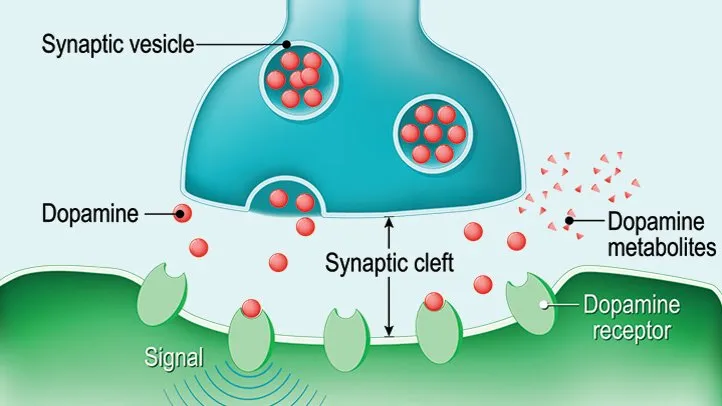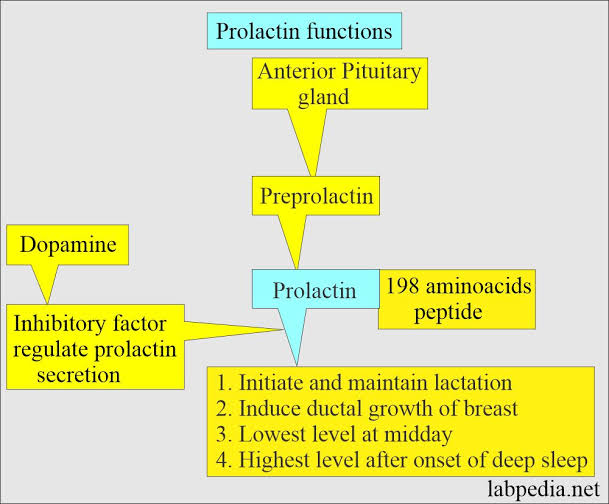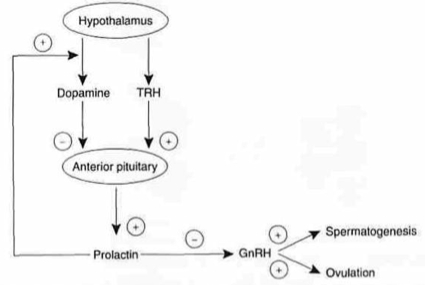Saint
HTN by 2026
- Joined
- Sep 15, 2025
- Posts
- 3,438
- Reputation
- 6,413
Dopamine is the neurotransmitter responsible for motivation, pleasure, and focus. It’s what drives people to pursue goals, food, success, and sexual reward. When a person watches pornography, the brain is exposed to an unnatural level of novelty — endless new scenes, partners, and scenarios. Each new image or video triggers another dopamine spike, far higher than what would occur in a real-world sexual encounter.

Over time, the brain begins to adapt to this constant overstimulation. It reduces the sensitivity of its dopamine receptors — a process known as downregulation.
PROLACTIN
After orgasm, prolactin levels rise sharply. Prolactin helps induce relaxation and satiety — it’s what causes the post-orgasm “tired” feeling and temporary loss of sexual desire.
Occasional release keeps this system balanced. However, frequent ejaculation, especially in combination with prolonged porn use, can lead to chronically elevated prolactin. When prolactin stays high for long periods, it can:


This cycle mirrors the pattern seen in other behavioral addictions, where the brain becomes desensitized to normal reward signals and dependent on artificial stimulation.
TESTOSTERONE
Frequent pornography use and ejaculation can suppress testosterone indirectly through hormonal and neurological feedback loops. After orgasm, prolactin levels rise sharply, which temporarily lowers dopamine and signals the body to reduce sexual drive and hormone production.

When this cycle happens too often, prolactin can remain chronically elevated, leading to reduced testosterone synthesis in the testes. At the same time, constant overstimulation of the brain’s reward system weakens dopamine sensitivity, further disrupting the hormonal balance that supports testosterone. Over time, this pattern can result in lower energy, libido, and vitality — all signs of diminished testosterone activity.
Overall
Stop jerking off

Over time, the brain begins to adapt to this constant overstimulation. It reduces the sensitivity of its dopamine receptors — a process known as downregulation.
PROLACTIN
After orgasm, prolactin levels rise sharply. Prolactin helps induce relaxation and satiety — it’s what causes the post-orgasm “tired” feeling and temporary loss of sexual desire.
Occasional release keeps this system balanced. However, frequent ejaculation, especially in combination with prolonged porn use, can lead to chronically elevated prolactin. When prolactin stays high for long periods, it can:
- Suppress dopamine activity, worsening the sense of apathy and fatigue.
- Decrease testosterone production through hormonal feedback loops.
- Contribute to lower mood and slower recovery from stress.


This cycle mirrors the pattern seen in other behavioral addictions, where the brain becomes desensitized to normal reward signals and dependent on artificial stimulation.
TESTOSTERONE
Frequent pornography use and ejaculation can suppress testosterone indirectly through hormonal and neurological feedback loops. After orgasm, prolactin levels rise sharply, which temporarily lowers dopamine and signals the body to reduce sexual drive and hormone production.

When this cycle happens too often, prolactin can remain chronically elevated, leading to reduced testosterone synthesis in the testes. At the same time, constant overstimulation of the brain’s reward system weakens dopamine sensitivity, further disrupting the hormonal balance that supports testosterone. Over time, this pattern can result in lower energy, libido, and vitality — all signs of diminished testosterone activity.
Overall
Stop jerking off

